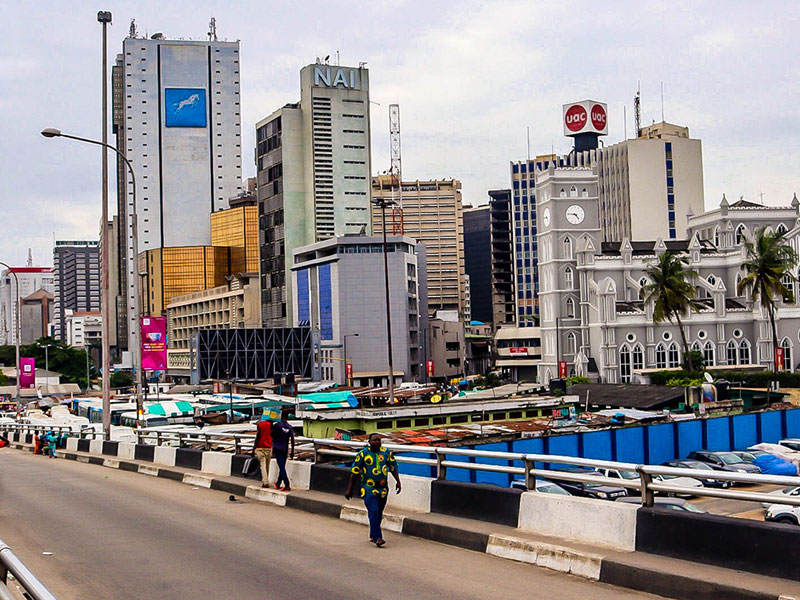📉 Naira Hits Record Low as Global Trade Tensions Escalate
Nigeria’s financial markets are grappling with renewed pressure as global economic tensions ripple through emerging markets. Following the U.S. administration’s recent imposition of sweeping tariffs on global imports, the Nigerian naira has tumbled to an all-time low of ₦1,600/$1 in the official market. This marks a 1.9% drop from the previous rate, sparking concern among investors and businesses alike.
The steep decline is a reflection of rising global risk aversion, and Nigeria is among several frontier markets bearing the brunt of reduced capital flows and currency volatility.
🏦 Central Bank Steps In to Stabilize Forex Market
In an urgent response to the naira’s slide, the Central Bank of Nigeria (CBN) intervened by selling $200 million into the official forex market. This move is aimed at cushioning the naira and curbing speculative activities in the parallel market.
“The CBN remains committed to maintaining a stable exchange rate through strategic interventions,” a spokesperson said.
“We are closely monitoring external risks, especially those triggered by sudden tariff shocks.”
The intervention is seen as part of the bank’s broader mandate to protect Nigeria’s financial system amid global economic headwinds.
🇺🇸 U.S. Tariffs Pose Threat to Nigeria’s Non-Oil Exports
The Nigerian government has officially responded to the U.S. decision to introduce 14% tariffs on select African exports, including Nigerian cocoa, textiles, and agricultural products.
Officials warned that the policy could significantly disrupt non-oil export growth, which has been a core component of Nigeria’s economic diversification strategy.
“We are in close talks with trade partners and are actively exploring alternatives to cushion exporters and local industries,” the Ministry of Trade and Investment stated.
Analysts say the move underscores Nigeria’s over-reliance on oil exports and the urgency of building resilience through a stronger domestic manufacturing base.
🌍 World Bank to Support Nigeria’s Financial Infrastructure
In a silver lining, the World Bank announced a $10.5 million grant to support Nigeria’s financial sector reforms. The funds will be directed toward:
Boosting the CBN’s technical capacity
Enhancing digital financial infrastructure
Strengthening cybersecurity within the payments system
This initiative aligns with Nigeria’s push toward a cashless economy and is expected to improve the efficiency and reach of digital banking services, particularly in underserved regions.
📊 Bond Markets Also Feel the Heat
Investors in Nigerian sovereign Eurobonds have also reacted to global uncertainty, with bond prices falling and yields climbing to 12%. The sell-off reflects investor fears of rising external debt costs and the broader macroeconomic implications of reduced trade flows.
🧠 Final Thoughts
Nigeria finds itself at a crossroads — navigating domestic reforms while contending with external shocks. The current volatility in forex and bond markets is a stark reminder of how interconnected Nigeria is with global trends.
As the government and central bank roll out measures to stabilize the economy, all eyes will remain on how effectively Nigeria can adapt to the changing tides of global finance.
Nigeria’s Financial Markets Face Pressure Amid Global Tariff Shock









MoviezHive
Hey there!
Welcome to Moviezhive.com, where blockbuster entertainment is just a click away!
Stream a vast collection of Bollywood, Hollywood, and international movies for free—no subscriptions, no hassles.
What Makes Us Special?
✔️ Thousands of movies across all genres
✔️ Zero pop-up ads for seamless viewing
✔️ Advanced zero-buffering tech for smooth playback
✔️ Fresh titles added regularly
Can’t find a movie? Request it, and we’ll upload it fast!
Watch anytime, anywhere. Visit https://moviezhive.com now and start your movie adventure!
Enjoy the Show,
The Moviezhive Team